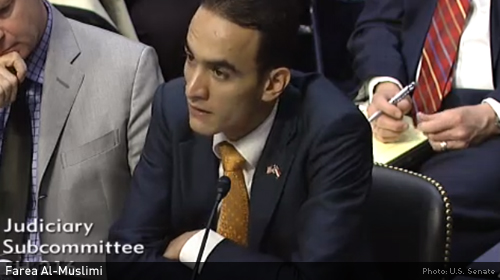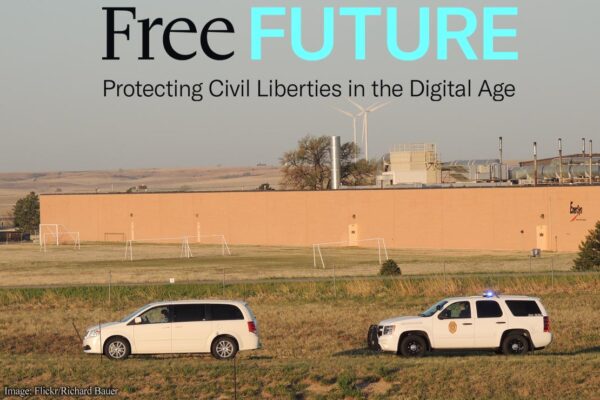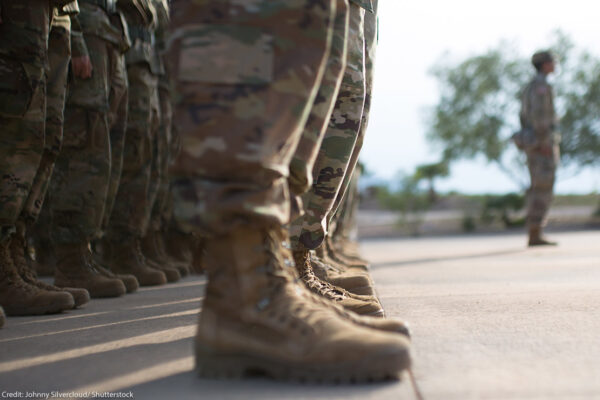In Senate Testimony, Yemeni Activist Describes Human Costs of Targeted Killing Program


The following is the oral testimony given by Yemeni democracy and human rights activist Farea Al-Muslimi at yesterday's Senate Judiciary Committee hearing, "Drone Wars: The Constitutional and Counterterrorism Implications of Targeted Killing." It has been posted here with his permission.
Thank you Chairman Durbin and Ranking Member Cruz for inviting me here today.
My name is Farea al-Muslimi I am from Wessab, a remote village in the mountains of Yemen. Just six days ago, my village was struck by a drone, in an attack that terrified the region's poor farmers.
Wessab is my village but America helped me become what I am today. I come from a family that lives off the fruit, vegetables, and livestock we raise on our farms. My father's income rarely exceeds $200 per month. He learned to read late in life, my mother never did.
My life has been different. I am who I am today because the U.S. State Department supported my education.
I spent a year living with an American family and attending an American high school. That was one of the best years of my life. I learned about American culture, managed the school's basketball team, and participated in a trick or treat at Halloween. But the most exceptional experience was coming to know someone who ended up being like a father to me. He was a member of the U.S. Air Force. Most of my year was spent with him and his family. He came to the mosque with me and I went to church him. He became my best friend in America.
I went to the U.S. as an ambassador for Yemen. I came back to Yemen as an ambassador of the U.S.
I could never have imagined that the same hand that changed my life and took it from miserable to promising would drone my village. My understanding is that a man named Hameed Al-Radmi, was the target of the drone strike. Many people in Wessab know Al-Radmi and the Yemeni government could easily have found and arrested him. Al-Radmi was well known to government officials and even the local government could have captured him if the U.S. had told them to do so.
In the past, what Wessab's villagers knew of the U.S. was based on my stories about my wonderful experiences here. The friendships and values I experienced and described to the villagers helped them understand the America that I know and love.
Now, however, when they think of America they think of the terror they feel from the drones that hover over their heads ready to fire missiles at any time. What violent militants had previously failed to achieve, one drone strike accomplished in an instant: there is now an intense anger against America in Wessab.
This is not an isolated instance. The drone strikes are the face of America to many Yemenis.
I have spoken to many victims of U.S. drone strikes, like the mother in Ja'ar who had to identify her innocent 18-year-old son's body through a video on a stranger's cell phone. Or the father in Shaqra who held his 4 and 6-year-old children as they died in his arms.
Recently, in Aden, I spoke with one of the tribal leaders present in 2009 at the place where a U.S. cruise missile targeted the village of Al-Majalah in Lawdar, Abyan. More than 40 civilians were killed, including four pregnant women. Bin Fareed and others tried to rescue the victims, but the bodies were so decimated that it was impossible to differentiate between those of children, women and their animals. Some of these innocent people were buried in the same grave as animals.
In my written testimony I provide detail about the human costs of these and other drones strikes based on the interviews I have conducted or been part of.
I have personal experience of the fear they cause. Late last year, I was in Abyan with an American journalist colleague. Suddenly, I heard a buzz. The local people we were interviewing told us that based on their past experiences, the thing hovering above was an American drone.
My heart sank. I felt helpless. It was the first time that I had truly feared for my life, or for an American friend's life in Yemen.
I couldn't help but think that the drone operator just might be my American friend with whom I had the warmest and deepest relationship here. I was torn between this great country that I love and the drone above my head that could not differentiate between me and some AQAP militant.
It was one of the most divisive and difficult feelings I have ever encountered. I felt that way again when my village was droned.
Thank you for having this hearing. I believe in America, and I deeply believe that when Americans truly know about how much pain and suffering U.S. airstrikes have caused, and how they are harming U.S. efforts to win the hearts and minds of the Yemeni people, they will reject this devastating targeted killing program.
Read Farea Al-Muslimi's full written testimony here.
Learn more about targeted killings and other civil liberty issues: Sign up for breaking news alerts, follow us on Twitter, and like us on Facebook.



